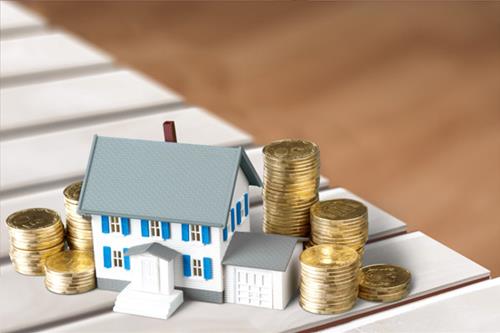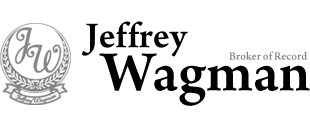Reverse mortgage: Is this the solution if you retire cash-poor?
7/18/2018
| SHARE
Posted in Mortgages and Real Estate by Vanguard Realty | Back to Main Blog Page

Reverse mortgages have never been this popular in Canada.
Inquiries about them have doubled between 2016 and 2017, according to HomeEquity Bank’s CHIP Reverse Mortgage, which was, for a time, the only financial institution to offer them nationwide.
And as a wave of baby boomers crosses the work-life finish line, competition to serve those who are feeling house-rich and cash-poor is heating up. Equitable Bank became a second option for retirees looking for a reverse mortgage in January when it announced its PATH Home Plan, which is available through mortgage brokers in Alberta, British Columbia and Ontario.
The basic idea of a reverse mortgage is simple. Instead of making payments to build up equity in your home, as you would with a traditional mortgage, you draw down on your home equity and receive payments. You can opt for a lump-sum loan or get a certain amount of cash at regular intervals.
It sounds like the personal finance equivalent of having your cake and eating it, too: You generate some extra income and get to stay in your home. In a country where nearly a third of those approaching retirement has no savings, that seems like a great deal.
One catch, though, is that the bank gets a rather large slice of your cake, as well. Reverse mortgages are expensive. The current interest rate on a five-year fixed-rate loan is 6.49 per cent, almost double what you’d pay with a regular mortgage these days.
The other obvious catch is that there will be less cake left for your kids, grand-kids and anyone else who might survive you.
“A reverse mortgage is never the first choice,” said Robert McLister, mortgage planner at intelliMortgage.com.
Juicing your home equity to squeeze out some extra cash isn’t a retirement plan. It’s a last resort for someone who has no other options, said Clay Gillespie, a financial adviser and managing director at RGF Integrated Wealth Management.
Still, he adds, for someone with, say, a $2-million home who has minimal retirement income from government benefits, “a reverse mortgage makes all the sense in the world.”
Here are a few things you should know about reverse mortgages:
Reverse mortgage basics
Reverse mortgages are only available to Canadians 55 and older who own their home.
The overall amount of the loan is capped at 55 per cent of the value of the house for HomeEquity Bank and 40 per cent for Equitable Bank. The good news here is that you can’t borrow more than your home is worth.
However, how close you’ll be able to get to the cap depends on your age, your equity stake, the appraised value of your home, where you live and current interest rates, among other factors.
In general, “you’d have to be in your late 70s, living in an urban centre and likely male,” to be able to borrow the maximum, Yvonne Ziomecki, executive vice-president, at HomeEquity Bank told Global News. That’s because home values in cities tend to be higher and men have a shorter life expectancy.
On that note, keep in mind that your spouse’s age matters as well. You both have to be at least 55 to get a reverse mortgage, and you might not be able to borrow as much if you have a younger spouse.
When you take out a reverse mortgage, the interest on your loan comes out of your home equity. For example, if you have a $400,000 home and take out $100,000 at 6.49 per cent over five years, you’d be paying over $37,000 in interest, according to HomeEquity Bank’s online calculator. That means your equity stake in the house would be $137,000 less by the end of the mortgage term.
The lender will continue to charge you interest until the loan is paid in full. In the example above, assuming you don’t want another loan but are unable to repay what you owe at the end of year five, your rate will be reset for another five-year term, according to Ziomecki. Put simply, your new rate applies to the full $137,000, not just your original principal of $100,000.
If you sell the house, your reverse mortgage will discharge like any other mortgage: The lender gets what it is owed first, you get the rest. The same applies if you die without having moved out. Assuming you have descendants and a will, your survivors will get whatever is left, if anything.
Pros and cons
There are several pros and cons to reverse mortgages:
Equity
- Con: Compounding – or paying interest on interest – the interest charges can erode your home equity pretty quickly, Gillespie warned.
- Pro: On the other hand, keep in mind that your home equity will likely go up as well. In our example, even assuming a very moderate rate of appreciation of 2 per cent per year would add over $41,000 to your home value. After five years, you’d end up with $304,000 in equity, slightly more than when you took out the $100,000 loan.

- Con: “It’s hard or often impossible to borrow against a property that has a reverse mortgage on it, apart from just increasing the reverse mortgage,” Tea Nicola, co-founder and CEO of robo adviser WealthBar told Global News via email.
Market conditions
- Pro: Boomers are arguably the perfect generation to take advantage of reverse mortgages. Many of them, especially in Vancouver and Toronto, own homes that have doubled or tripled in value since they bought them. That appreciation is essentially money for which they did not save and which they can now easily turn into cash. Reverse mortgages help resolve the issue that “you can’t really sell a tenth of your house,” if you need a tenth of the money, Gillespie noted.
- Con: But boomers’ timing for taking out a reverse mortgage seems less than perfect. “Economic indicators would lead us to believe that we are headed for rising interest rates and a housing correction, which is not a favourable environment for reverse mortgages. Even if housing prices hold strong, the interest-rate rise would have a negative impact,” Nicola said. According to HomeEquity Bank’s Ziomecki, home appreciation and the amount borrowers owe in principal plus interest tend to move in tandem (if you’re looking at the graph above, the green and red line tend to rise in parallel). But one has to wonder whether this might change as home prices cool off and interest rates rise from historic lows.
Your descendants
- Con: Your home is likely your biggest asset, so if you start chipping away at the equity in old age, there may be little left for your heirs.
- Pro: This may be less of a pro than a mitigation of a con, but it’s an important point. Even if home prices plummet and your home value eventually dips below the amount of your reverse mortgage loan, you will never end up with negative equity. “That’s the beauty of a reverse mortgage,” Gillespie said. The worst-case scenario is that you or your survivors walk away with nothing after selling the home. But your children will not be left with debts to pay.
- Pro: Leaving no inheritance and maintaining financial independence is arguably preferable to having to borrow from family to pay your bills in old age.
Staying in your home
- Pro: You get to stay at home. This is very important for many people, often for sentimental reasons. According to a recent poll conducted by Ipsos for HomeEquity Bank, nine in 10 Canadian aged 65 and over feel that way.
- Con: According to Gillespie, many people stop feeling that way around the time they hit 80, when they can no longer climb up and down the stairs and things like gardening and minor house maintenance become impossible chores. One of the dangers of reverse mortgages is that, even if you sell the house, you won’t have enough money to cover end-of-life health-care costs.
- Con: Staying in your home may not be the smartest financial decision if moving to a smaller home costs considerably less, Gillespie said.
Gillespie said that while he pulls reverse-mortgages quotes for clients every month these days, he has only ever recommended the product five times over his decades-long career. Instead, he generally advises downsizing.
And reverse mortgages are hardly something that people can rely on to boost their retirement income over a 30- to 35-year period, he added. Case in point, according to Ziomecki, the typical HomeEquity Bank client takes out a reverse mortgage around age 70 and stays with the lender for about 10 years.
Still, for the cash-poor and house-rich, a reverse mortgage is something that “can dramatically improve your lifestyle,” Gillespie said.
Source: Global News
Canadian Seniors, Home Owners, Retirement, Reverse Mortgages

Thinking of buying or selling a property, or have a question regarding the real estate market? Fill out the form below and we'll get back to you promptly.
